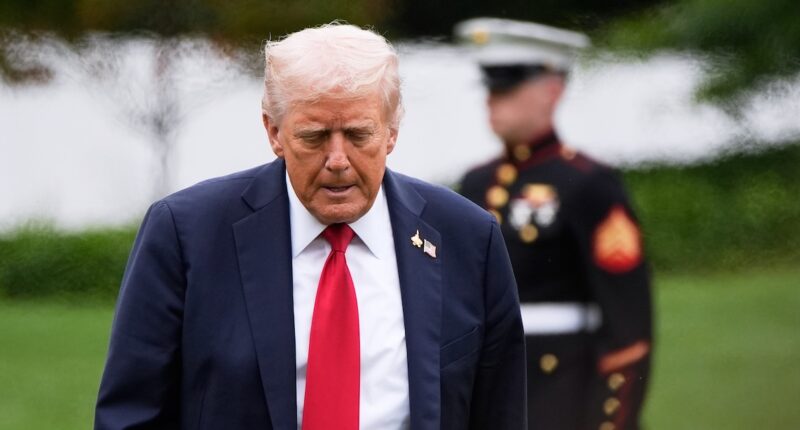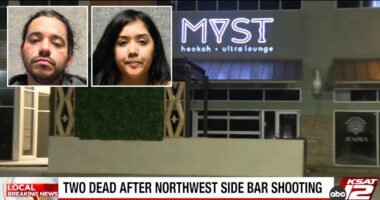Share this @internewscast.com
President Donald Trump walks from Marine One after arriving on the South Lawn of the White House, Tuesday, Sept. 30, 2025, in Washington (AP Photo/Alex Brandon).
In a decisive ruling, a federal appellate court has rejected former President Donald Trump’s initiative to deploy the National Guard in Chicago, stating that the actions were not justified by the circumstances. This unanimous decision by the 7th U.S. Circuit Court of Appeals underscores the court’s stance that Trump’s actions exceeded the legal parameters.
The panel comprised judges appointed by Presidents George H.W. Bush, Donald Trump, and Barack Obama. They emphasized that while presidential determinations generally receive “great deference,” as seen in a similar case involving the National Guard in Oregon, the findings of the lower court were determined to be accurate. The district court’s assessment was deemed “not clearly erroneous,” a significant factor in the appellate court’s decision.
Judges Ilana Rovner, Amy St. Eve, and David Hamilton collectively concluded that no evidence supported the existence of a “rebellion” in Chicago, as defined by 10 U.S. Code § 12406. The ruling, presented as a per curiam decision, highlighted that Trump was not justified in his assertion that federal forces were necessary to uphold laws and protect federal interests.
“Political opposition does not equate to rebellion,” the judges clarified in their opinion. They argued that demonstrations do not constitute a rebellion simply because participants call for policy changes or engage in civil disobedience, even if they exercise their Second Amendment rights in the process. The panel further explained that isolated instances of unlawful behavior do not transform protests into rebellions.
The court’s decision emphasized that such behaviors, while possibly outside the bounds of the First Amendment, have been appropriately addressed by law enforcement. The judges concluded that Trump’s claims did not meet the legal definition of a “rebellion” that would warrant the deployment of National Guard troops, despite the opposition from Illinois’ Democratic Governor JB Pritzker, who cited the 10th Amendment in his objection.
The judges determined that Trump is not “likely to succeed” in showing that “spirited, sustained, and occasionally violent actions of demonstrators in protest of the federal government’s immigration policies and actions” meet the statutory meaning of a “rebellion” justifying the federalization of hundreds of National Guard troops, whether from Texas or Illinois, over the 10th Amendment objection of Democratic Gov. JB Pritzker.
According to the panel, the record up to now shows that the Trump administration “has been able to protect federal property and personnel without the National Guard’s help,” and so it left U.S. District Judge April Perry’s injunction in place.
At the same time, the judges acknowledged the situation on the ground could change. For that reason, the panel said the harm of allowing National Guard to remain “temporarily under federal control, without deploying” seems “relatively minimal.”
















